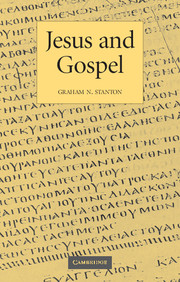Book contents
- Frontmatter
- Contents
- Preface
- List of abbreviations
- 1 Introduction
- PART I JESUS AND GOSPEL
- PART II JESUS
- 6 Jesus of Nazareth: a magician and a false prophet who deceived God's people?
- 7 Early objections to the resurrection of Jesus
- PART III THE GOSPELS AND PAPYRI CODICES
- Bibliography
- Index of passages cited
- General index
7 - Early objections to the resurrection of Jesus
Published online by Cambridge University Press: 21 December 2009
- Frontmatter
- Contents
- Preface
- List of abbreviations
- 1 Introduction
- PART I JESUS AND GOSPEL
- PART II JESUS
- 6 Jesus of Nazareth: a magician and a false prophet who deceived God's people?
- 7 Early objections to the resurrection of Jesus
- PART III THE GOSPELS AND PAPYRI CODICES
- Bibliography
- Index of passages cited
- General index
Summary
Recent studies of early Christian traditions about the resurrection of Jesus have generally overlooked the objections which were raised by opponents of Christianity in the first and second centuries. This is somewhat surprising. Historians know how important it is to consider evidence or arguments which are an embarrassment to the eventual ‘winners’. Astute theologians always listen carefully to the voices of ‘outsiders’.
There are three reasons for taking this rather off-beat approach. (1) Criticisms of early Christian claims concerning the resurrection of Jesus give us some limited insights into the variety of ancient attitudes to life after death. (2) They help us to appreciate more keenly the ways Christian proclamation of the resurrection was understood or misunderstood by both Jews and pagans. (3) By paying attention to early criticisms we may be able to trace more readily the points at which early Christian traditions about the resurrection have been shaped by apologetic concerns.
The potential value of this approach will be clear. So why have the voices of the critics not been heard? They have been ignored mainly because it is undeniably difficult to uncover the critics' views. We have much more extensive evidence for early polemical comments on the actions and teaching of Jesus. However, by casting the net widely I believe that it is possible to make a number of observations which are relevant to inquiries into the setting, development, and reception of early resurrection traditions, observations which stimulate further theological reflection today.
- Type
- Chapter
- Information
- Jesus and Gospel , pp. 148 - 162Publisher: Cambridge University PressPrint publication year: 2004



